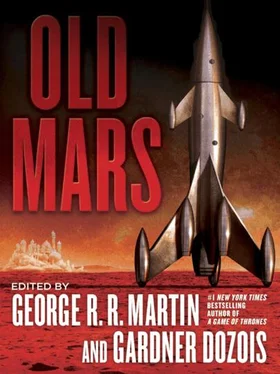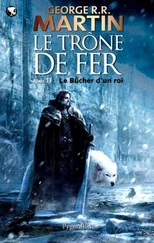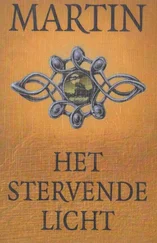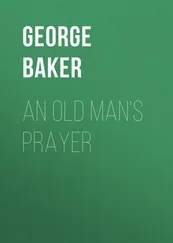And even at the end, surrounded as we were by the diabolical ships of the enemy, they knew to fear us. An animal cornered is at its most dangerous. So it was that I saw again Governor Smith.
Picture me if you will, Majesty, standing the wide bridge of the Serkeriah . Captain Carina Meer stood frowning down at the wide pool in which our vessel and our enemy’s were charted in light as if by angelic hands. The smell of burning flesh still hung in the air, mute witness to our previous engagements. Gentle La’an and Mister Kopler stood their stations beside me, each coordinating one-half of the great organism that our combined crews had become. And then we were joined. Through what magic I cannot say, but the wide pane of crystal before me shifted and changed, and like an enchanted mirror from fairy tales, the glass reflected not my own visage, but Governor Smith’s. The years had treated him gently. His mouse-brown hair was only touched by gray at the temple, his skin taut with the fat of rich feasts. His smile was the amiable one I had known once and allowed myself to count, however mistakenly, among my friends.
“Captain Lawton,” the governor said, “I was hoping to find you home.”
“Governor,” I replied.
“Your captor’s cause is lost. The criminal Carina Meer will be taken into custody by my allies, and her crimes will be answered. The only question remaining is how. I see that our guesses were correct. You and your men have been pressed into Captain Meer’s service.”
“I am no slaver,” Carina Meer said. “It is the Ikkeans who take slaves and force others to their will.”
“Be that as it may,” the governor went on, “I have a proposition, Captain Lawton. My allies would prefer a clean transfer of the prisoner and her stolen goods. The ship itself is of no interest to them. If you and your men would be so good as to secure the person of Carina Meer and open your locks to our envoys, the Serkeriah will be yours by right of salvage.”
“I cannot believe you are sincere,” I said.
“On the contrary,” the governor said. “I give you my word of honor, and as we both know, I never break my word.”
It was true, Majesty. However devilishly he might construct his promises, however Mephistophelian his skills in breaking the spirit of a bargain, Governor Smith’s word of honor had not been sullied, not even in the act of destroying mine. If he promised me the great ship that traveled between worlds in exchange for Carina Meer and her alloy, then the ship would be mine. I had no doubt.
Shall I say, then, that I hesitated? It is, after all, the action expected of a man of my repute. Shall I say that given the prospect of defeat on one hand and freedom and limitless power on the other, that my base nature swayed me? It did not. My reply to the governor was immediate, crude, heartfelt, and medically improbable.
The Ikkean boarding assault began at once.
To board a vessel in the abyss between the worlds is no easy thing. The attacking craft flew toward us, their infernal engines burning at the full. Cruel mouths pierced the ship’s skin and spat out their warriors into the halls and domes of the Serkeriah . A great many, I believe, were lost in that first hour as my men and hers cut down the invaders even as they spilled forth. They were massive creatures, Majesty. But their vast arachnid bulk belied their terrible speed. From devices carried on the ends of their legs, they produced rays of purified light that could burn a man down in a few moments. And beside these devils from the pit were the colonial guard, in duty servants to the crown, but in truth the creatures of Governor Smith.
We fought them in the corridors and halls, the radium stores and the ship’s vast eight-chambered heart. Doctor Koch drove them briefly back to their ships with a noxious gas he fashioned with the Manae engineer Octus Octathan. And Quohog, young Carter, and Mister Darrow contrived to salvage a cannon from the ruins of the Dominic of Osma that blew a dozen Ikkeans into yellow sludge and cracked bits of carapace. It is with great pride that I report my men, ruffians and blackguards all, fought like heroes of old. Their guns fired without pause, and their swords wove a flashing net of steel through which even the Ikkean horrors feared to pass. But such vigorous defense also left us terrible losses, and again and again we fell back. Near the end, I stood with Captain Meer, my own cutlass in one hand and a contrivance of glass and silver that burned with emerald light in the other, holding back the enemy. To this day, I can feel her back against my own as we stood our ground. For one moment, the stench of smoke and death parted and the scent of magnolia came to my nostrils. I hope when my time comes to die that will be the last memory my failing mind recalls.
Of course, we were overwhelmed. The cost to the enemy, I credit myself and my crew, was great, but at last the sheer force of numbers swamped us all. I was struck to the ground, then bound ankle and wrist, and roughly hauled to a prison chamber with the rest. There we lay, almost a hundred of our mixed crew. A quarter, perhaps, of my own men had perished, and their bodies were stacked against one wall with the bodies of Carina’s people. These were men whose dreams I had come to know, whose fates had been bound to my own. Many of them were not good men, not kind or merciful or gentle, but they were mine and they were lost. Captain Meer lay bound beside me. A wide bruise covered her exposed shoulder and her lip had been cut by an enemy blow. I called out to Mister Kopler and Mister Darrow and was reassured to hear their voices.
“You should have accepted his offer,” Carina Meer said.
Young Carter’s voice said, What offer was that? but I ignored him.
“When you surrendered to me aboard the Vargud , I promised that you would come to no harm,” I said. “I am fairly certain that Governor Smith would not have respected that. I had no choice.”
She turned to me as best she could. Her eloquent smile carried sorrow and amusement, admiration and despair.
“And if you had made no such promise?” she asked. “If your somewhat tarnished sense of honor had not restrained you, would you then have betrayed me?”
I was silent for a time. I understood then only by my vague animal unease the dexterity with which the astonishing woman could unmake me as I knew myself and resurrect a different man in my place. Young Carter muttered: Because if there was an offer, it might have been nice to hear what the terms were , before Doctor Koch hushed him. I heaved a great sigh.
“I would not have,” I confessed. “Though it would have saved my men their lives and me my own, I would not give anyone into the power of Governor Smith and his new allies.”
“Consider, then, that though you have lost your honor, something must still constrain you,” she said. “Honor is a burden that may be shifted or forgone. From goodness, I think, there is no escape.”
What can I say, Majesty? I had that day suffered blows to my body and my soul. I had faced the charging mandibles of vast spider-beasts and said silent farewell to men as near to me as family. How strange, then, that the thing to destroy Alexander Lawton, Scourge of the Caribbean Sea, should be delivered so gently, so kindly. I lay in our crowded prison, my eyes to heaven, and confronted for the first time the proposition that the loss of my honor might not also be the loss of my soul. For so many years as a youth, I strove to protect and celebrate my honor, that in the end it became my weakness. My love for my good name was the vulnerability that Governor Smith had used to shatter me. My years upon the seas, my flaunting of law and decency, all of it became a pettiness. Would you expect the thought to bring joy? That the light of goodness might spill over me like some abstract and spiritual dawn? It did not. On the contrary, it stung. Like Achilles, I had gone to my tent to sulk, and with a gentle rebuke, Carina Meer suggested that the choice had been beneath me.
Читать дальше












